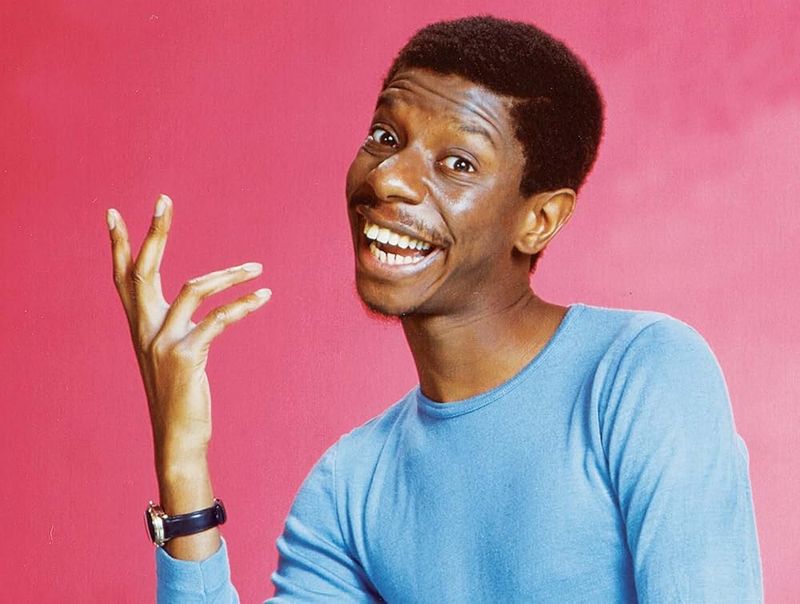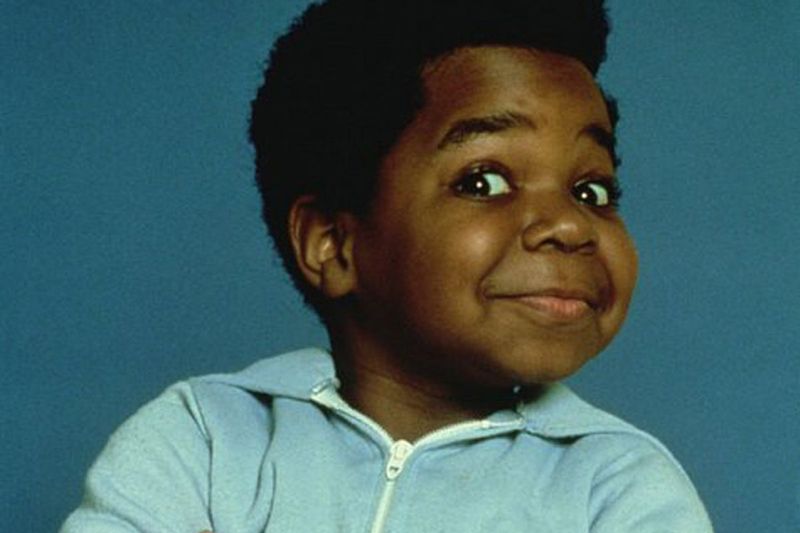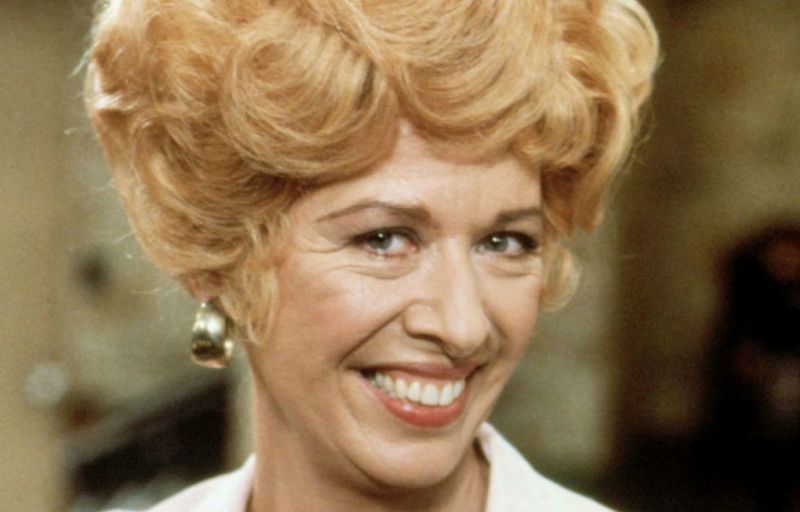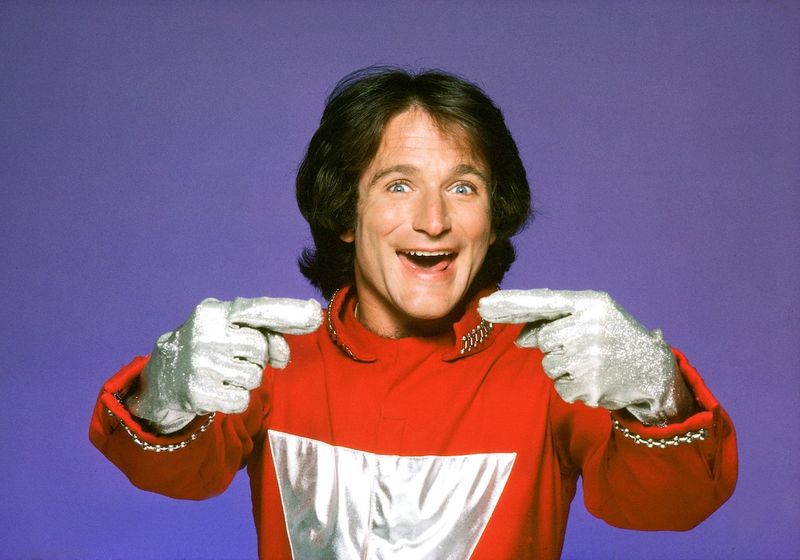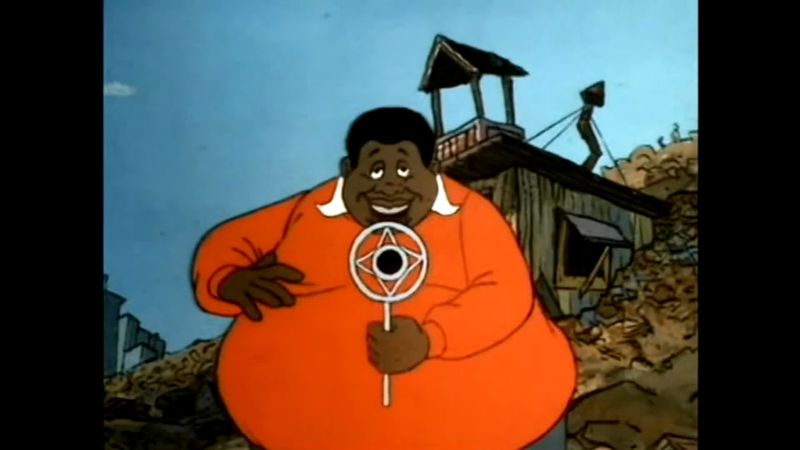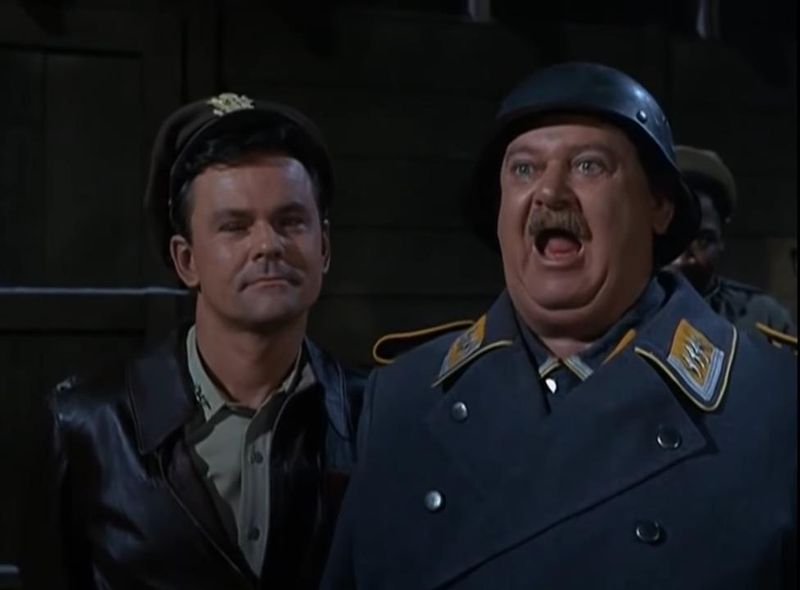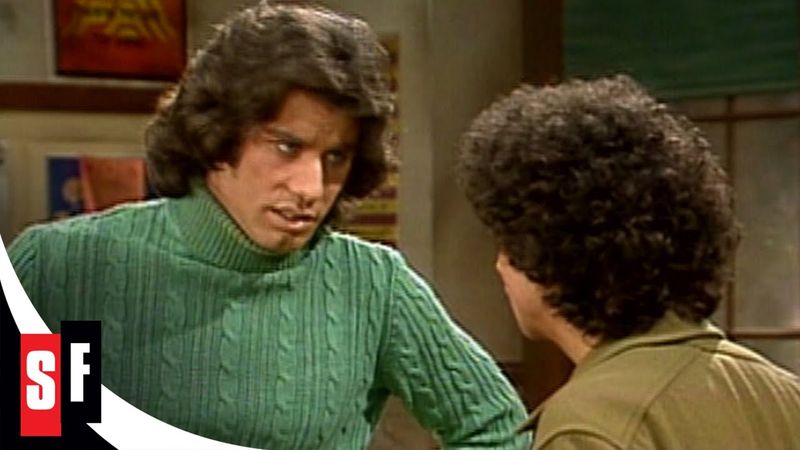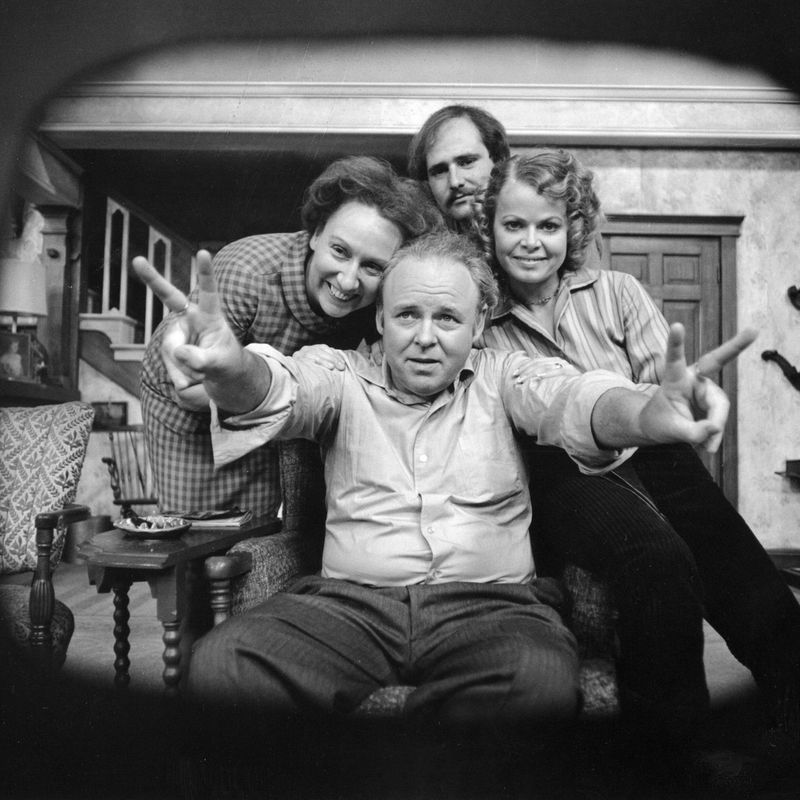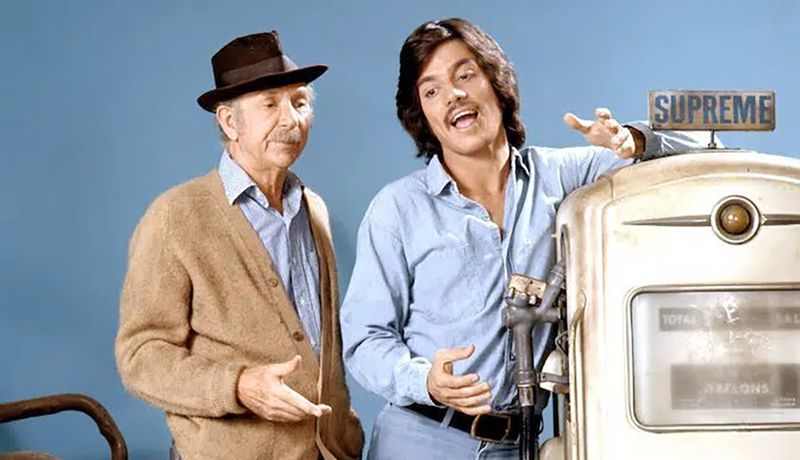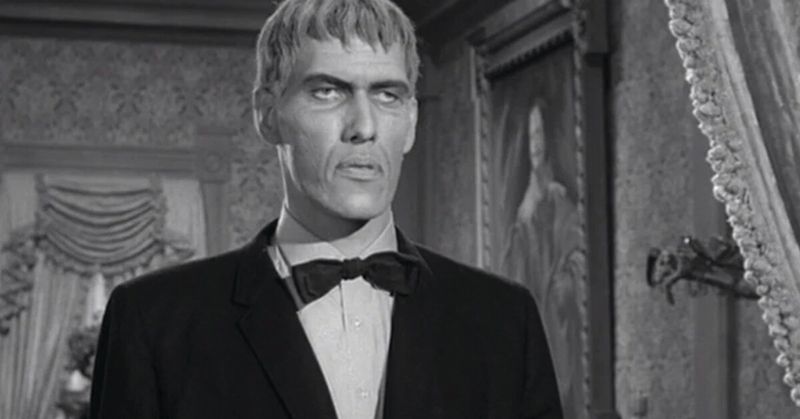The 1970s were a golden era for television catchphrases that stuck with us for decades. From family sitcoms to action shows, these memorable lines became part of our everyday language.
Kids who grew up watching these shows still find themselves dropping these phrases into conversation, often to the confusion of younger generations who missed the original cultural moment.
1. “Dy-no-mite!” – J.J. Evans, Good Times
Nothing captured the explosive energy of 1970s television quite like J.J. Evans’ signature catchphrase. Jimmie Walker turned this simple word into a cultural phenomenon that transcended the show itself. Parents would cringe as kids shouted it at the dinner table, in classrooms, and pretty much anywhere they could get away with it. The phrase packed so much attitude into three syllables that it became shorthand for anything exciting or impressive. The exclamation marks the perfect blend of character and catchphrase – you simply couldn’t imagine J.J. without his enthusiastic outburst, or the decade without this unforgettable expression.
2. “Sit on it!” – Fonzie, Happy Days
Arthur Fonzarelli gave us the perfect comeback before ‘whatever’ or ‘talk to the hand’ existed. This dismissive yet somehow family-friendly putdown became the go-to phrase for playground disputes across America. Henry Winkler’s leather-jacketed cool made everything he said instantly quotable, but this particular line offered kids a rebellious-feeling retort that wouldn’t get them sent to the principal’s office. The beauty was in its versatility – applicable to almost any situation requiring a snappy comeback. The phrase worked its way into everyday speech so thoroughly that many people used it without even remembering its Fonzie connection.
3. “Book ’em, Danno.” – Steve McGarrett, Hawaii Five-O
Jack Lord’s commanding delivery of this line signaled the satisfying conclusion to every Hawaii Five-O case. After 60 minutes of tropical crime-solving, these three words provided the perfect punctuation to justice being served. Kids playing cops and robbers would inevitably end their imaginary arrests with this authoritative command. The phrase became so embedded in police show culture that it influenced countless detective series that followed. Even people who never watched an episode somehow absorbed this catchphrase through cultural osmosis. The line’s staying power proves how a simple, repeatable phrase can transcend its original context to become part of our shared vocabulary.
4. “Whatchoo talkin’ ’bout, Willis?” – Arnold Jackson, Diff’rent Strokes
Gary Coleman’s perfect delivery transformed what could have been a throwaway line into television immortality. His character’s signature question captured both childlike confusion and perfect comedic timing in one memorable package. The phrase worked on multiple levels – it expressed disbelief, created tension, and showcased the height and age difference between Arnold and his older brother. Kids everywhere mimicked Coleman’s distinctive voice and timing, making it the ultimate playground impression. Though the show debuted late in the decade (1978), this catchphrase rapidly became one of the most recognizable in television history. Its cultural impact extended far beyond the show’s original run through decades of references in other media.
5. “Kiss my grits!” – Flo, Alice
Polly Holliday’s fiery waitress Flo delivered this Southern-fried retort with such sass that it became impossible not to repeat. The perfect blend of regional flavor and good-natured defiance made this catchphrase an instant hit. For kids in the 1970s, it offered a slightly edgy phrase that wasn’t quite swearing but still carried a punch of attitude. Many a parent was shocked to hear their children telling friends to ‘kiss their grits’ during disagreements. The catchphrase embodied the decade’s shifting attitudes toward women speaking their minds. Flo’s character represented a working-class woman who wouldn’t be pushed around, making her signature line all the more satisfying.
6. “Na-nu Na-nu.” – Mork, Mork & Mindy
Robin Williams brought alien greetings into American homes with this simple yet utterly distinctive salutation. Accompanied by the split-fingered hand gesture pressed against the ear, this Orkan hello became playground currency overnight. Kids couldn’t resist the combination of the funny-sounding phrase and the physical gesture. It was the perfect secret handshake for the playground – instantly identifying fellow fans of the show and creating an immediate bond. What made this catchphrase special was Williams’ manic energy and commitment to his character’s otherworldliness. The alien greeting symbolized the show’s fish-out-of-water premise while showcasing Williams’ unique comedic talents that would later make him a superstar.
7. “Hey, hey, hey!” – Fat Albert, Fat Albert and the Cosby Kids
The booming, friendly greeting that opened each animated episode became an instant hit on playgrounds nationwide. That simple three-word welcome carried such warmth and character that kids couldn’t help but adopt it as their own. The phrase captured Fat Albert’s friendly personality and set the tone for the show’s positive messages. Children would greet their friends with the signature phrase, often attempting to mimic the deep, distinctive voice that made it so memorable. Beyond just being fun to say, the catchphrase represented the show’s neighborhood camaraderie. It symbolized friendship and community in a way that resonated with young viewers, making it more than just a cartoon tagline but a genuine expression of positivity.
8. “I know nothing!” – Sgt. Schultz, Hogan’s Heroes
John Banner’s portrayal of the bumbling German guard gave us the perfect denial for any sticky situation. His exaggerated accent and wide-eyed innocence when delivering this line made it comedy gold that survived through 1970s reruns. Kids quickly learned that channeling Schultz was the perfect way to avoid trouble. Whether dodging blame for a broken window or explaining missing cookies, the phrase offered plausible deniability with a wink of humor. The beauty of this catchphrase lay in its versatility and the physical comedy that accompanied it. The hands-up, eyes-closed delivery became as much a part of the quote as the words themselves, creating a full-package excuse that worked in almost any childhood predicament.
9. “Up your nose with a rubber hose!” – Vinnie Barbarino, Welcome Back, Kotter
John Travolta’s dim-witted but lovable Sweathog introduced this bizarre insult that somehow managed to be both offensive and completely nonsensical. The absurdity made it perfect for kids who wanted to sound tough without actually saying anything truly mean. Parents and teachers across America suddenly found themselves confronting this strange phrase as children incorporated it into their vocabulary. Its popularity demonstrated how television could instantly transform made-up expressions into cultural phenomena. The rhythmic quality of the phrase made it particularly catchy and fun to repeat. Combined with Barbarino’s exaggerated delivery and cocky attitude, it became the signature comeback for a generation of kids who wanted to channel a bit of Travolta’s cool.
10. “Stifle yourself!” – Archie Bunker, All in the Family
Carroll O’Connor’s grouchy patriarch delivered this dismissive command whenever his wife Edith rambled too long. The phrase perfectly encapsulated Archie’s impatient, old-school character while providing viewers with a quotable moment of domestic friction. Kids who were allowed to watch this groundbreaking but controversial show quickly adopted the phrase. It became a playground staple despite many children not fully understanding the social commentary behind the series. What made this catchphrase endure was its usefulness in everyday situations. When someone talked too much or shared unwanted opinions, “stifle yourself” offered the perfect blend of humor and dismissiveness that could shut down conversations without seeming too harsh.
11. “It’s not my job!” – Chico, Chico and the Man
Freddie Prinze’s garage mechanic character made this dismissive phrase a national sensation. Delivered with perfect comic timing and a distinctive accent, the line captured both workplace attitude and cultural humor of the era. For kids growing up in the 1970s, this became the ultimate excuse to avoid chores and responsibilities. Parents would ask children to take out the trash only to hear “It’s not my job!” complete with Chico’s accent and mannerisms. The catchphrase worked because it tapped into universal feelings about work and obligation. While adults might have seen it as a reflection of changing workplace attitudes, kids simply loved having a television-approved way to dodge responsibilities with humor rather than outright refusal.
12. “Danger, Will Robinson!” – Robot, Lost in Space
Though Lost in Space began in the 1960s, its popularity in syndication made this robotic warning a staple of 1970s childhood. The mechanical companion’s arms-waving alert became the universal signal for imminent trouble. Kids would shout the phrase to warn friends of approaching teachers, parents, or other authority figures. The beauty of this catchphrase was how it combined genuine usefulness with nostalgic sci-fi appeal. The line’s staying power comes from its perfect encapsulation of friendship and protection. The Robot wasn’t just stating a fact – it was looking out for Will Robinson, making the phrase more than a warning but a declaration of loyalty that resonated with children forming their own friendships and alliances.
13. “You rang?” – Lurch, The Addams Family
Ted Cassidy’s towering butler and his deadpan delivery made this simple question into comedic gold. Though The Addams Family originated in the 1960s, heavy syndication throughout the 1970s kept Lurch’s signature phrase alive for a new generation. The deep bass delivery and perfect timing made it irresistible for kids to imitate. Whenever someone called their name or knocked on their door, the opportunity to respond with Lurch’s iconic phrase was too tempting to resist. What made this catchphrase special was how it transformed ordinary interactions into moments of macabre humor. By channeling Lurch, 70s kids could add a touch of delightful creepiness to everyday situations, bringing the Addams Family’s unique brand of spooky fun into their regular lives.

